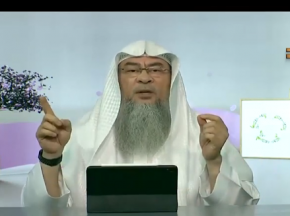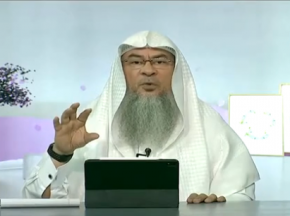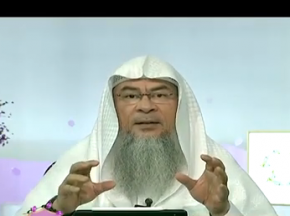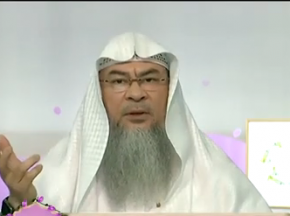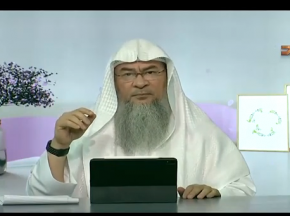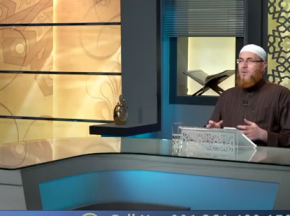content of level
Who is right, the one following the Sunnah or a School Of Thought (Madhab)?
Who is right, the one following the Sunnah or a School Of Thought (Madhab)? - Assim al hakeem.
Are the Knees & the Navel part of the Awrah for Men?
Are the Knees & the Navel part of the Awrah for Men? - Assim al hakeem.
What is the ruling on a woman reciting aloud during prayer
What is the ruling on a woman reciting aloud during prayer? - Dr Muhammad Salah.
Ruling on having a throne for the wedding
Ruling on having a throne for the wedding - Dr Muhammad Salah.
Transferring the dead body to be buried home
Transferring the dead body to be buried home - Dr Muhammad Salah.
Can i fast and pray if the period is over but i am sick
Can i fast and pray if the period is over but i am sick - Sheikh Assim Al Hakeem.
Can i ask Allah to show me a dream?
Can i ask Allah to show me a dream? - Dr Muhammad Salah.
Is it permissible to make zikr of the shahada 'la illah ila Allah '
Is it permissible to make zikr of the shahada 'la illah ila Allah ' Sheikh Assim Al-Hakeem.
How to calculate zakat
How to calculate zakat - Dr Muhammad Salah.
Seeking refuge from a dua which will not be answered
Seeking refuge from a dua which will not be answered - Dr Muhammad Salah.
In which position counts as rakat
In which position counts as rakat - Dr Muhammad Salah.
Performing Ghusl for Umrah
Performing Ghusl for Umrah - Sheikh Assim Al Hakeem.
Is it permissible to say sayyidina Muhammad?
Is it permissible to say sayyidina Muhammad? Dr Muhammad salah.
Taking shower with water that has been reicted quran on it?
Taking shower with water that has been reicted quran on it Sheikh Assim Al-Hakeem.
Is it permissible to invest in sukuk in an islamic bank?
Is it permissible to invest in sukuk in an islamic bank?Sheikh Assim Al Hakeem.
Can we participate in games which contains surprise prizes we don't know
Can we participate in games which contains surprise prizes we don't know Sheikh Assim Al Hakeem.
I have to pay bribe to finish my papers
I have to pay bribe to finish my papers.
Niqab - Covering the women face
Niqab - Covering the women face.
Is it permissible to inhale steam or bakhoor during fasting
Is it permissible to inhale steam or bakhoor during fasting.
reciting out loud or silently while praying Sunnah prayer
reciting out loud or silently while praying Sunnah prayer.








